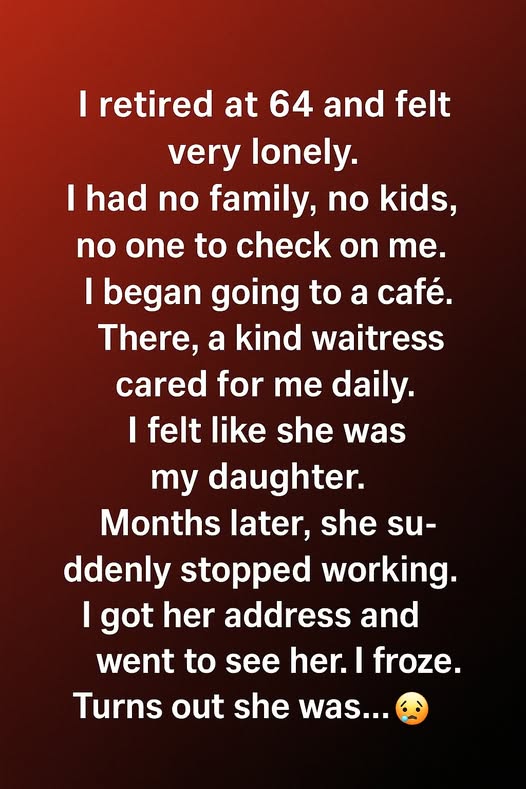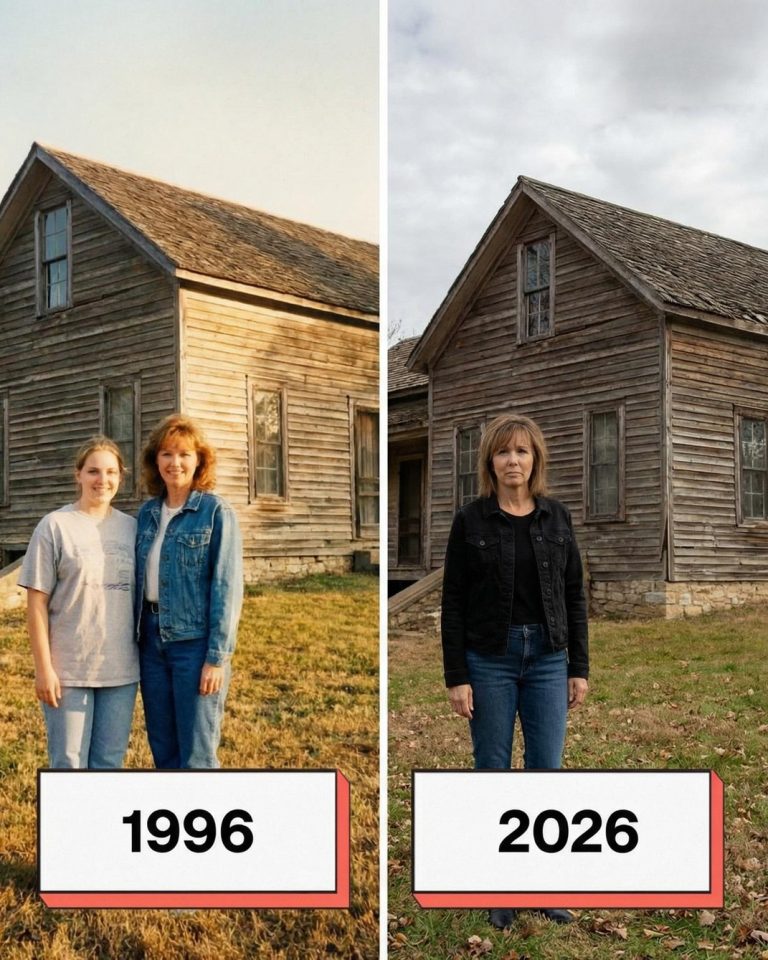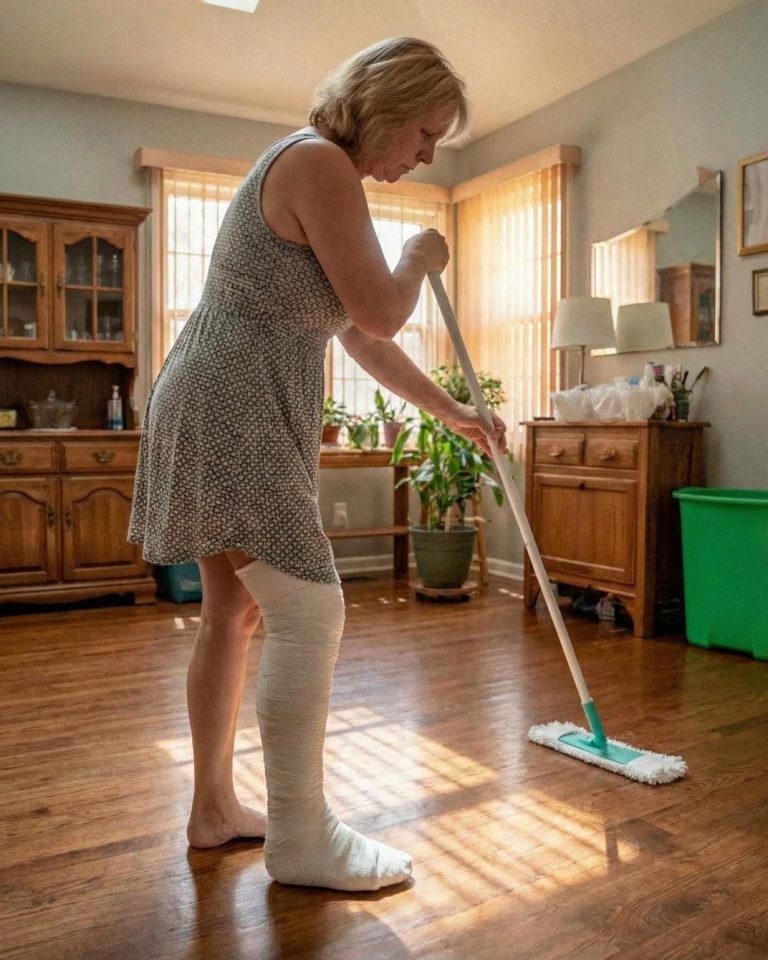
When I retired at 64, the silence in my apartment was deafening.
I had no family, no kids, no one to check on me. The days stretched endlessly — long, quiet hours filled with the sound of the clock ticking and the hum of the refrigerator.
For the first time in my life, I realized how heavy loneliness could feel.
One morning, desperate for human connection, I decided to visit a small café down the street — The Willow Cup. It was cozy, with mismatched chairs, the smell of cinnamon rolls, and a little bell that chimed each time the door opened.
That’s where I met her.
Her name was Lena.
She was the waitress who always wore her hair in a messy bun and had a soft, kind smile that seemed to light up even the gloomiest mornings.
The Beginning of a Routine
The first time I went there, I sat alone, quietly sipping my coffee. Lena noticed I wasn’t much of a talker. But instead of forcing conversation, she just smiled and said, “Cream and sugar on the side — just in case you change your mind.”
The next morning, when I came back, she remembered my order.
“Good morning, Mr. Thomas,” she said cheerfully. “The usual?”
No one had remembered something about me in years.
That small act of kindness hit me harder than I expected. From that day on, The Willow Cup became part of my daily routine. I’d sit by the window, read the newspaper, and Lena would always stop by to chat — sometimes about her favorite books, sometimes about life.
She told me she lived alone, too, working double shifts to pay her rent while studying part-time to become a nurse. I admired her determination.
Over the weeks, I started to look forward to our talks more than the coffee itself. She’d laugh at my corny jokes, ask me about my late wife, and sometimes bring me a slice of pie “on the house.”
There was something about her — a warmth, a familiarity. I began to think of her as the daughter I never had.
The Disappearance
Then, one morning, Lena wasn’t there.
A different waitress served my coffee that day.
“Where’s Lena?” I asked.
“Oh… she doesn’t work here anymore,” the girl replied, avoiding my eyes.
My heart sank. “Did she quit?”
“I think so. I’m not really sure. She just stopped coming.”
Days turned into weeks, and I couldn’t shake the emptiness that crept back in. I asked the café owner if he knew what happened to her, and after a pause, he hesitated before scribbling an address on a napkin.
“She’s a good kid,” he said quietly. “You should check on her.”
I took the napkin and slipped it into my jacket pocket.
The Visit
It took me three days to gather the courage.
When I finally drove to the address, I found myself in front of a worn-down apartment building on the outskirts of town. The curtains were drawn, the paint chipped, and a quiet heaviness hung in the air.
I knocked on the door.
No answer.
I was about to leave when I heard faint movement inside — a soft cough, followed by footsteps.
The door creaked open, and there she was — but she looked nothing like the vibrant young woman I remembered.
Her skin was pale, her eyes tired, and she leaned heavily against the doorframe.
“Mr. Thomas?” she whispered, surprised.
“Lena…” I stammered, my heart twisting. “What happened to you?”
She gave a weak smile. “You didn’t have to come.”
But I had to.
Inside, her apartment was almost empty — a small bed, a single chair, and stacks of medical bills on the counter. That’s when I realized — she was sick.
“I didn’t want anyone to see me like this,” she said quietly. “I was diagnosed with leukemia last month. I had to quit work.”
My throat tightened. I wanted to say something comforting, but all I could manage was, “You should have told me.”
She laughed softly. “You have your own life, Mr. Thomas. You don’t need to worry about me.”
But she was wrong. I did worry.
A Second Chance at Family
From that day forward, I visited her every afternoon. I’d bring groceries, flowers, or sometimes just stories to make her laugh.
She loved when I read to her — especially mystery novels. I’d sit beside her bed, book in hand, and she’d listen with her eyes closed, smiling faintly at the sound of my voice.
Weeks turned into months. Slowly, she began to recover. The treatments were working, though they left her weak.
One day, as I poured her tea, she said softly, “You know, you remind me of my dad. He died when I was little.”
I smiled. “And you remind me of my daughter… the one I never had.”
She looked at me with tears in her eyes. “Then I guess that makes us family, doesn’t it?”
The Years After
It’s been three years since that day. Lena fully recovered and finally finished nursing school.
And every morning, without fail, she visits me before her shift at the hospital — coffee in one hand, the newspaper in the other.
Sometimes we still go to The Willow Cup, though the owner now calls us “his favorite pair.”
The loneliness I once felt is gone.
It’s funny how life works — how the people we need most often appear when we least expect them.
Lena calls me “Dad” now. The first time she said it, I cried.
And every time she hugs me before heading to work, I whisper the same words back:
“Take care, sweetheart. I love you.”
Because in the end, family isn’t always about blood. Sometimes, it’s about the hearts that choose to care for one another — even when the world forgets to.



